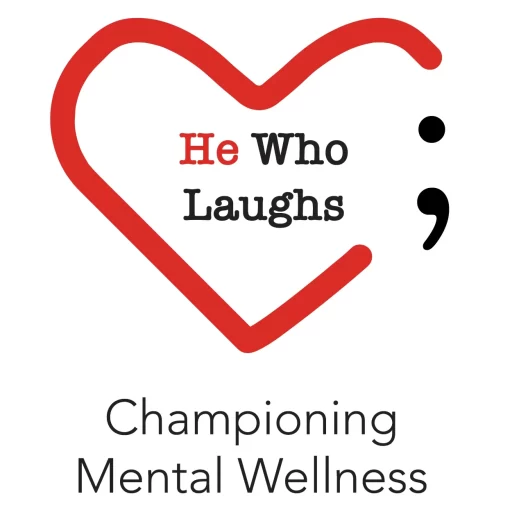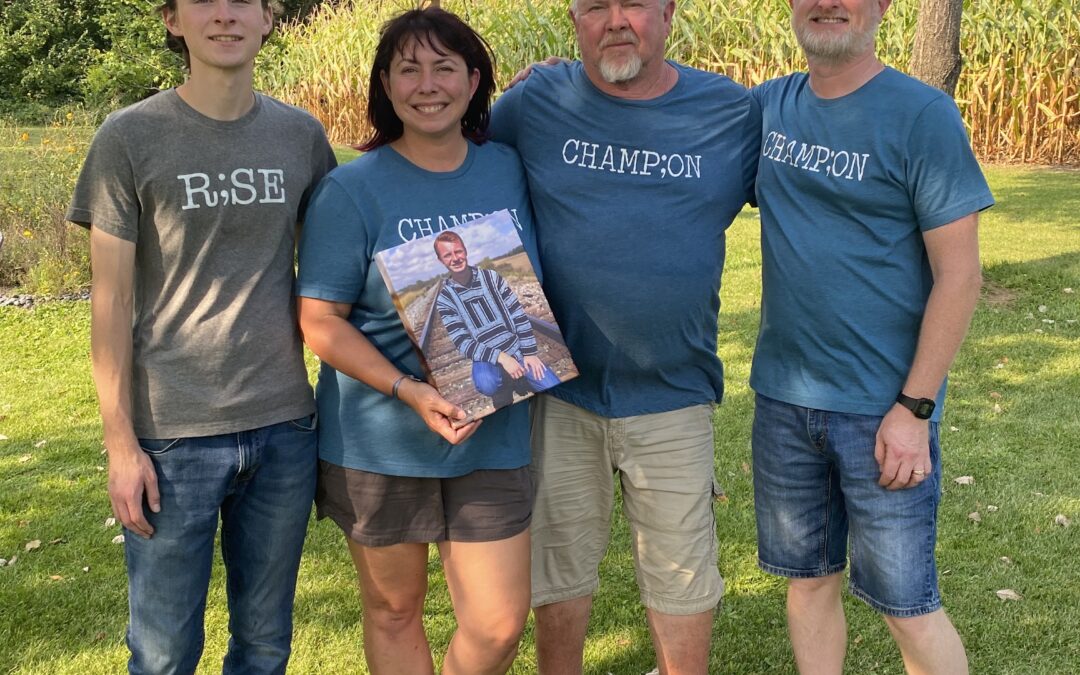I realize that if you have never experienced tragic loss the notion that grief has friends sounds crazy. On one hand, I absolutely rejoice that you don’t get it. However, if you don’t get it also means you may have a hard time relating to the space that myself and so many others occupy when tragic loss, such as a suicide loss, crosses your path.
I use the word occupy because the ache of suicide loss does not go away. The ache of suicide loss is constant and yet, the initial feelings around loss change as you learn to move and grow around it. I know this type of discussion is hard to hold because at first glance I think it is a universal feeling to say, “I cannot do this. I can’t live without (insert name).” Tragic loss is something I wish on no one. It is the kind of loss that rocks you to your very core and leaves you forever changed. When Isaac died I remember telling people I died that day. Someone told me in reply, “that is heavy and dark.” Well, I am not sure it could be anything but heavy and dark when you find your child dead.
Friends of Grief
Just to be clear, loss is defined as an act of losing someone or something. Grief is the internal reaction to the loss and mourning is the outward expression of the loss. What no one seems to talk about early in grief is all the friends of grief. I am not sure if this is a taboo topic because the experience is different for each person and thus increases the difficulty to hold, or if it is because no one wants to dive into what cannot fixed. Maybe it is a little of both and truth be told, we cannot deny the friends of grief. While I will list out some of the grief friends, it is important to note that not all individuals will experience these friends:
- Anger
- Joy
- Guilt
- Fear
- Anxiousness
- Frustration
- Despair
- Hopelessness
- Sorrow
- Love
In our culture these grief friends are viewed as an “or” and not as an “and” when used in descriptions. For example, each time we have a milestone in our family that is a birth, wedding, or even a birthday I find myself witnessing the crazy amount of love in front of me. However, in that same moment of deep love I also find myself silently saying, “Isaac is not here and he would have enjoyed this so much.” Moments of joy and sorrow because in my life they exist as friends.
When I am able to sit with these friends of grief I realize they hold valuable life lessons for me and how I engage the world. Not all of the visitors have to hold lessons, but instead of fighting their presence I am learning to walk with them. Sometimes, I even invite them to sit around my table. I realize it sounds crazy, but the more I fight them the more they show up unannounced making things messy. I should also add that these friends visit whenever. They do not come in stages or at specific milestones, but rather at times when you are ready to sit with them.
What each grief year has taught me?
This year will be year four without our oldest son, Isaac, physically here. I say physically here because I assure you, he is energetically active and doing quite well from where he waits. While this is not the life I envisioned raising two active sons, I humbly recognize that sometimes you have to let go of the life you wanted, to live the life before you. That subtle shift in my thinking came in June 2021, when I heard Isaac speak to me as I crossed the Puget Sound with Jon and Gabe at my side. Isaac whispered on the wind, “I need you to remember I lived.” I can’t explain why he spoke to me and yet in that moment my grief journey profoundly shifted. In that shift I could see clearly what visitor of grief was at my side; love had visited.
Year one brought me numbness. The version of me that existed before Isaac died could not stomach existing without one of my children mentally, emotionally, or physically. I died the day I found my sweet boy and my world came crashing in. My survival in year one was finding out who I really was because everything that was familiar or comforting was gone. In some ways I was reborn in my greatest loss, and now I am trying to find my way home.
The second year brought the friend of anger. Anger that I kept so close to my heart it started to consume me from the inside out. I grew up with a parent who very much tried to control my feelings. The ache of losing a child compacted many emotions from my childhood and thus, childhood trauma was given life as it came to sit as anger at my table. The funny thing is, as soon as I befriended my anger she was no longer loud. Instead, she was quiet and watchful. She now witnesses much without ever saying word.
At the start of year three, I boldly said we as a family would try to “live” even in holding great sorrow. Our timeline is one of life with Isaac and life without Isaac. Somewhere in that timeline we are learning to live. We are the living proof of joy and sorrow. That reality makes others uncomfortable and we know it. We see how you whisper or glance at us when we enter a room. I assure you the awkwardness of the moment is just as evident to us as it is for you. We don’t know how to live without him. Therefore, we won’t live without him, but instead we will transform our grief day by day to live in a new way with him.
None of us know what year four will hold and here we are showing up daily, trying to be the best we can. We do know that we will continue to speak Isaac’s name and the name of so many others. Right now, that small act is what feel rights for so many reasons. You can learn more about our personal story by visiting, Suicide: The Club No One Wants In. I would love to hear what friends of grief have come to visit you in the comments below. The grief journey is unique and every step helps to normalize grief conversations.

